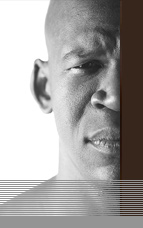|
10 Tips for a Good Night's Sleep
- Set a schedule:
Retired older adults may find that the loss of structure in their day can adversely affect sleep. Try to go to bed at a set time each night and get up at the same time each morning. Disrupting this schedule may lead to insomnia. If you must nap, take only one short nap in the early afternoon.
- Develop a relaxing bedtime routine:
Do the same things each night to tell your body that it's time to wind down. Some people watch the evening news, read a book, or soak in a warm bath.
- Exercise:
Try to exercise 20 to 30 minutes at a regular time each day. Daily exercise often helps people sleep. For maximum benefit, try to get your exercise in the late afternoon or morning. Avoid exercise within a few hours of bedtime because it can interfere with sleep.
- Be careful about what you eat:
Don't drink beverages with caffeine late in the day. Caffeine is a stimulant and can keep you awake. Sources of caffeine include coffee, chocolate, soft drinks, non-herbal teas, diet drugs, and some pain relievers. Also, if you like a snack before bed, a warm beverage and a few crackers may help. Avoid heavy meals or hard-to-digest foods less than three hours before bedtime.
- Avoid nicotine and alcohol:
Smokers tend to sleep lightly and may wake up in the early morning due to nicotine withdrawal. Alcohol suppresses REM sleep at the beginning of the night and causes disrupted sleep. When REM sleep returns later in the night, nightmares may occur.
- Sleep until sunlight:
Sleep experts recommend exposure to an hour of morning sunlight for people having problems falling asleep. If possible, wake up with the sun, or use very bright lights in the morning. Morning sunlight helps the body's internal biological clock reset itself in an earlier direction each day. However, for people who wake too early, avoiding morning sunlight and getting natural light in the afternoon will tend to make sleep start and end later.
- Don't lie in bed awake:
If you can't get to sleep or get back to sleep, don't lie in bed worrying. In fact, don't lie in bed awake for more than 20 minutes, even if you are not worrying. Do something else, like reading, watching television, or listening to music, until you feel tired. The anxiety of being unable to fall asleep or fall back to sleep contributes significantly to insomnia.
- Create a safe and comfortable place to sleep:
Make sure there are locks on all doors and smoke alarms on each floor. A lamp that's easy to turn on and a phone by your bed may be helpful. The room should be well ventilated and as quiet as possible. Maintain a comfortable temperature in the bedroom. Extreme temperatures may disrupt sleep or prevent you from falling asleep.
- Sleep in the dark:
Keep your bedroom as dark as possible while sleeping. If you need to get up in the middle of the night, avoid exposure to bright lights. Nightlights or other very dim lights in the bedroom, hallways, and bathroom can help you walk safely to the bathroom without turning on lights.
- See a doctor if your sleeping problem continues:
If you have trouble falling asleep night after night, or if you always feel tired the next day, then you should see a physician. Your physician can help treat underlying problems, such as medication side effects, chronic pain, or bladder problems, that may be diminishing your sleep quality. He or she can also diagnose and treat sleep disorders, or refer you to a sleep specialist if necessary. Most sleep disorders can be treated effectively, letting you get that good night's sleep you need.
|
|


